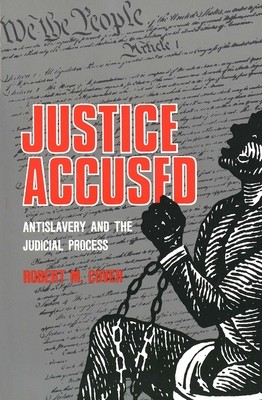
- We will send in 10–14 business days.
- Author: Robert Cover
- Publisher: Yale University Press
- ISBN-10: 0300032528
- ISBN-13: 9780300032529
- Format: 15.6 x 23.3 x 2.9 cm, softcover
- Language: English
- SAVE -10% with code: EXTRA
Reviews
Description
What should a judge do when he must hand down a ruling based on a law that he considers unjust or oppressive? This question is examined through a series of problems concerning unjust law that arose with respect to slavery in nineteenth-century America. "Cover's book is splendid in many ways. His legal history and legal philosophy are both first class. . . . This is, for a change, an interdisciplinary work that is a credit to both disciplines."-Ronald Dworkin, Times Literary Supplement "Scholars should be grateful to Cover for his often brilliant illumination of tensions created in judges by changing eighteenth- and nineteenth-century jurisprudential attitudes and legal standards. . . An exciting adventure in interdisciplinary history."-Harold M. Hyman, American Historical Review "A most articulate, sophisticated, and learned defense of legal formalism. . . Deserves and needs to be widely read."-Don Roper, Journal of American History "An excellent illustration of the way in which a burning moral issue relates to the American judicial process. The book thus has both historical value and a very immediate importance."-Edwards A. Stettner, Annals of the American Academy of Political and Social Science "A really fine book, an important contribution to law and to history."-Louis H. Pollak
EXTRA 10 % discount with code: EXTRA
The promotion ends in 18d.22:29:20
The discount code is valid when purchasing from 10 €. Discounts do not stack.
- Author: Robert Cover
- Publisher: Yale University Press
- ISBN-10: 0300032528
- ISBN-13: 9780300032529
- Format: 15.6 x 23.3 x 2.9 cm, softcover
- Language: English English
What should a judge do when he must hand down a ruling based on a law that he considers unjust or oppressive? This question is examined through a series of problems concerning unjust law that arose with respect to slavery in nineteenth-century America. "Cover's book is splendid in many ways. His legal history and legal philosophy are both first class. . . . This is, for a change, an interdisciplinary work that is a credit to both disciplines."-Ronald Dworkin, Times Literary Supplement "Scholars should be grateful to Cover for his often brilliant illumination of tensions created in judges by changing eighteenth- and nineteenth-century jurisprudential attitudes and legal standards. . . An exciting adventure in interdisciplinary history."-Harold M. Hyman, American Historical Review "A most articulate, sophisticated, and learned defense of legal formalism. . . Deserves and needs to be widely read."-Don Roper, Journal of American History "An excellent illustration of the way in which a burning moral issue relates to the American judicial process. The book thus has both historical value and a very immediate importance."-Edwards A. Stettner, Annals of the American Academy of Political and Social Science "A really fine book, an important contribution to law and to history."-Louis H. Pollak


Reviews